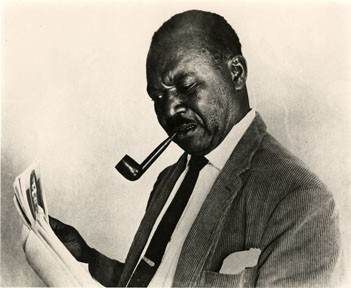Evon Blake(1906-1988)

Name: Eyrell “Evon” Blake
Born: February 7, 1906
Died: November 7, 1988
Industry: Journalism; Publishing
It was over a century after Emancipation in the British West Indies, but racial segregation strongly manifested within various spheres of the Jamaican society; the luxurious Myrtle Bank Hotel in Kingston was no different. In the summer of 1948, a Black man, on his own, dared to express his disapproval of such legacy. He plunged into the hotel’s pool which was occupied by Whites who subsequently left the pool in protest. The management demanded his exit but he refused their requests. Such an act got him a lifetime pass, but more importantly, it significantly undermined racial barriers at the hotel. This man was pioneer journalist, Evon Blake, born Urell Blake.
Blake was born on the 7th day of February, 1906 in Salem, Clarendon to Cottilda Ayre- Blake and farmer, Joseph Blake. He attended the Tabernacle Elementary School (1912- 1921) in James Hill, Clarendon and the Government Farm School/ Jamaica School of Agriculture (1921- 23) in Kingston. He later studied Stenography, Accounting, Spanish Literature and Journalism in Colon, Panama, and LaSalle Extension University of Scranton, Pennsylvania in the United States of America where he attained a Ph.D. with honors.
In 1923, having just completed his third year at the Government Farm School, Evon Blake, while on his way home, was drawn to a ship in the Kingston harbour on which he spontaneously decided to stow away to Panama where he spent thirteen years. It was here that his career as a journalist began.
LIFEWORK
Blake started out as a columnist for the Star and Herald of Panama from 1928 to 1929 and then moved on to serving as secretary to the manager of Panama Agencies Company in Cristobal. Later, he joined the staff of the United Fruit Company. This was his final job in Panama as he returned to Jamaica in 1933 where he became an established journalist. However, he first joined the Jamaica Constabulary Force where he was recruited as an interpreter/translator and political undercover operator at the Kingston Division; he served in this capacity for only a brief period in 1933.
In June of the same year, Blake became crime reporter and columnist at the Gleaner Company located at the time on Harbour Street in Kingston. He resigned in 1938 and began freelance writing for the Jamaica Standard, a daily newspaper, and the Jamaica Times, a weekly newspaper. This lasted for about a year because in 1939 Blake parted from this engagement to establish what would become a much recognized and successful venture of his, the Spotlight Newsmagazine which was the first of its kind in Jamaica.
Spotlight Newsmagazine, Evon Blake declared on its launch (January 1940) had, “a triple feature combination—News, Information, Entertainment; a combination which no literate man, woman or child can resist: a popular appeal” (Spotlight, 1). He further noted that although the Magazine would communicate news of political happenings, it would avoid airing views related to such happenings. Hence, the Magazine’s disconnect from political tribalism which he believed would jeopardize its span of life.
As editor and publisher of the Magazine for sixteen and a half years, Blake’s work covered several news items relating to crime, the World War, business, industry, government, education, labor, sport, religion, women, folklore, press, politics and other subjects. In an endeavour to publish the “newsmagazine glamorous sister”, Mr. Blake, in 1953 established Spotlight Illustrated. However, it survived only three issues as a result of a lack of technical expertise in Jamaica.
The year 1956 was a turning point in Blake’s career. It was the year of Spotlight’s incorporation and his divorce from the said publication; the former resulting from financial difficulties and the second from irreconcilable differences between Blake and management. Subsequently, he launched in August 1957, Newday Newsmagazine which became the competition of its forerunner and lasted for eight and a half years.
Although it was the rival of Spotlight, Newday had a different geographical focus; it was West Indian. The name ‘Newday’, he said had a dual symbolism: “Considering the long mental night out of which it was born, considering that even while it is being born the people it is designed to serve are emerging joyously from out of the long political and social night of colonial rule into the hopeful new day of nationhood. . .” (Newday, 9) “Federal Affairs”, “Sport”, “Caribbean Quotes”, “About Ourselves”, “Women” and “Education” are just some of the content headings of the Newday Newsmagazine of the West Indies.
Mr. Blake’s work was not limited to journalism or publishing. He espoused nation building and sought to champion the cause of the socially and economically deprived. Besides editorials, writing letters to government officials was a fundamental part of these undertakings. Correspondences between him and former Prime ministers (The Most Honorable Michael Manley and The Right Excellent Sir William Alexander Bustamante of Jamaica) speak to such efforts. These include:
A letter dated 6th June 1963 which Mr. Blake wrote to Sir Bustamante stating that funds (20, 000 pounds) allocated for the Chicago Exhibition should instead be used to support the cause of the unemployed who were suffering dire hardships;
Correspondence between him and the Honorable Michael Manley (in March 1961) on the issue of granting scholarships to practicing Jamaican journalist;
A letter dated 2nd January which he wrote to Sir Bustamante expressing his disapproval of Americans instead of Jamaicans contracted to work on the Sandy Gully Project.
As a result of health issues, in 1963 Mr. Blake retired to Long Bay and later Anchovy, Portland. Here, he worked as a columnist for The Gleaner, feature writer for The Star, and produced two major publications; The Best of Evon Blake, 1967 and Beautiful Jamaica, 1970. Although the former of these two publications comprised the articles Mr. Blake felt was the best written by him, the latter (a colorful pictorial of Jamaica depicting various aspects of the society) gained more recognition not only locally, but internationally. It was an official government publication. Other publications include:
Publications (novels) for the Jamaican Movement for the Advancement of Adult Literacy [JAMAL]
- Unforgettable Sunday, 1977
- Money for Mama, 1978
- Night out of Town, 1979
- Legend of the God Bird, 1980
Extra-journalistic activities of Mr. Blake involved:
- Chairman of Jamaica Red Cross (Portland Branch)
- Member of Portland Region Hospital Management Board
- Member of Passely Gardens Agricultural College Board
- Member of Eastern Region Rent Assessment Board
- Director of Portland Chamber of Commerce
- Co-founder of Jamaica Press Association
ACCOLADES
- The Seprod Gold Medal for Journalism
- Silver Medal from the Institute of Jamaica
Mr. Blake withdrew from active journalism three years before his death at the University of the West Indies Hospital on November 7, 1988.
References
Blake, Evon. Anecdote, National Library of Jamaica.
Blake, Evon. Beautiful Jamaica. Vista Publications: 1970.
Blake, Evon. Correspondences, MS1955, National Library of Jamaica.
Blake, Evon. Newday Monthly West Indian News Magazine vol. 1: 1957.
“Evon Blake remembered as colourful, fearless.” The Daily Gleaner: 9 November, 1988:2. Print.
Blake, Evon. Spotlight News Magazine 1.1-12: 1940.
Blake, Evon. The Best of Evon Blake, 1967.
Blake-Hannah, Barbara. “My Father Who Fathered Me”, Jamaica Record: 20 November 1988.
“Veteran Journalist Evon Blake Dies.” The Star: 8 November 1988.
Related Documents
- Evon Blake remembered as colourful, fearless. The Daily Gleaner, November 11, 1988, p. 2.
- My father who fathered me. By Barbara Blake-Hannah. Jamaica Record, November 20, 1988, p. 9A.
- Veteran journalist Evon Blake dies. The Star, November 8, 1988.
- Eyrell “Evon” Blake – Biography.
- Anecdote – Evon Blake. ‘Great Jamaican’ Evon Blake buried. The Daily Gleaner, Saturday, November 26, 1988, p. 33.
- J.L.P. pays tribute to journalist Evon Blake. November 11, 1988.
